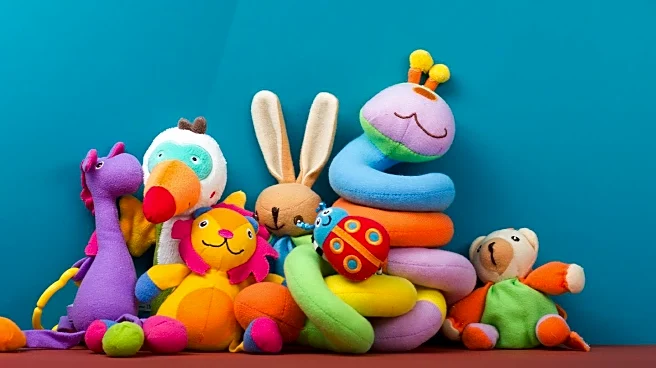What's Happening?
Jellycats, the soft plush toys known for their cute and quirky smiles, have seen a significant rise in popularity among young adults. Originally founded in London in 1999, the company has experienced a 37% surge in annual global income, reaching $252 million by the end of 2023. This trend is largely driven by a desire for comfort and nostalgia, as young adults seek relief from the emotional overload of modern life. Influencers like Ellie Hinchliffe have showcased extensive collections of Jellycats on platforms like TikTok, contributing to the trend. The term 'jellycat' has also seen a 208% increase in online search volume over the past year, indicating widespread interest.
Why It's Important?
The growing obsession with Jellycats among young adults highlights a broader societal trend towards seeking comfort and nostalgia in times of stress and uncertainty. This phenomenon reflects the emotional needs of a generation facing financial pressures and a rapidly changing world. The popularity of Jellycats underscores the importance of emotional wellness and the role of consumer products in providing psychological relief. As young adults continue to invest in these comforting items, it may influence market trends and consumer behavior, prompting businesses to cater to the emotional and nostalgic needs of their customers.
What's Next?
As the demand for Jellycats continues to rise, the company may explore expanding its product line or marketing strategies to further capitalize on this trend. Additionally, other businesses in the toy and comfort product industry might seek to emulate Jellycat's success by offering similar nostalgic and comforting items. The ongoing interest in Jellycats could also lead to collaborations with influencers and social media campaigns to maintain engagement with the target demographic.
Beyond the Headlines
The Jellycat trend raises questions about the psychological impact of consumerism and the ways in which individuals seek comfort through material possessions. It also highlights the potential for businesses to tap into emotional and nostalgic marketing strategies to connect with consumers on a deeper level. As society grapples with stress and uncertainty, the role of comforting products in mental health and emotional well-being may become increasingly significant.









